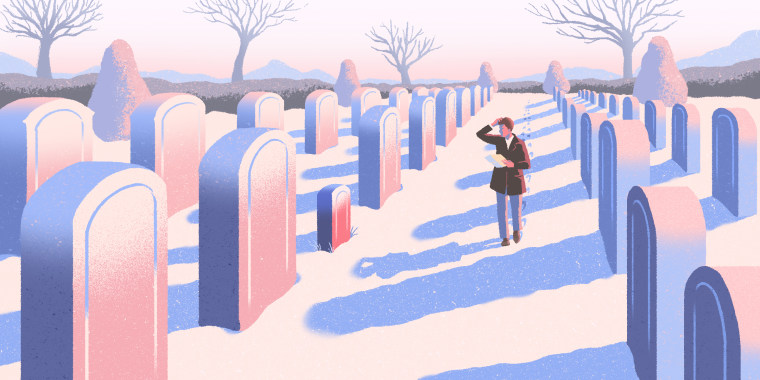I felt vaguely hopeful as I stalked through the cemetery. The sky was clear and the air was crisp. Dead leaves announced my footfalls. It was New Year’s Day of 2012 and I was thinking about new beginnings. One of the gravestones, I was sure, held what I was looking for. As I crisscrossed the rows of markers, I kept double-checking the map my father had given me. It was made of yellow paper and had my father’s handwritten notes pinpointing my mother’s final resting place. No one had studied this map in three decades.
At my side that day was my fiancé. We’d taken a cab from our home in Queens to Holy Cross Cemetery in the East Flatbush section of Brooklyn. She urged me to get some flowers before we left, but I figured they must sell them near our destination. I was wrong. Inside the cemetery gates the manicured grounds were populated with stunning gravestones bearing the names of former mayors and mobsters. But the surrounding area offered no amenities to the grieving. After 30 minutes of looking for somewhere to buy flowers, we gave up and went in, empty-handed.
We were there, in large part, because my fiancé was curious about my mother. I also wanted to “introduce” my future wife to my mother. It seemed a bit weird, but important. We prowled the section of the cemetery that my father had indicated and studied every marker. Then we studied them again. My eyes darted about desperately until I realized the unthinkable: My mother’s name was not there. All we found on the gravestone in question was the name of my grandmother, Marie.
Let me explain.
My mother, Mary Ann, died of spinal cancer when I was 9 years old. People speak of battling cancer. My mother never had a fighting chance. The tumors were crushing her spinal cord. One cold December night she was rushed from our home in an ambulance and never came back. We went to the cemetery for her funeral and, from what I remember, we never returned.
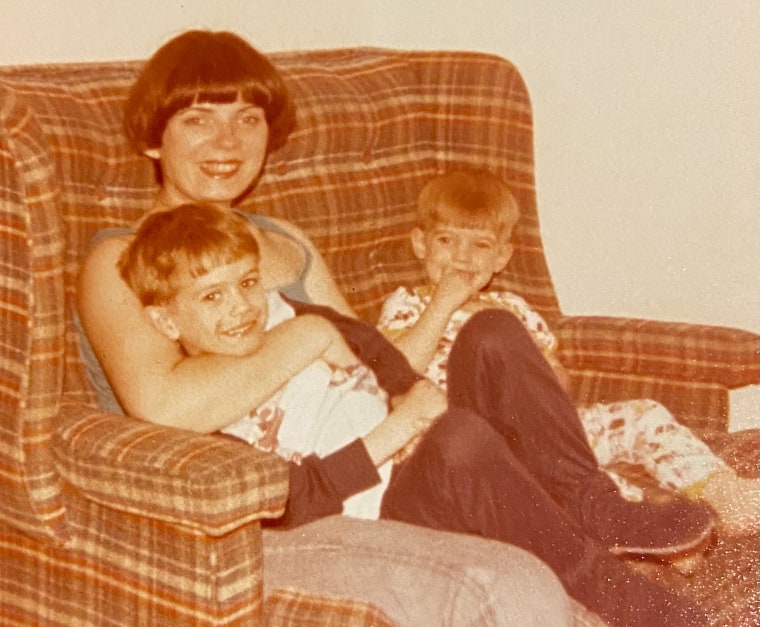
My father did the best he could to raise us. But he worked nights. In reality, my brother, Adam, and I raised ourselves. We cooked and cleaned and did our homework. Our father would check it and leave us notes in a big brown plastic binder. Parenting by correspondence.
Back in the graveyard, three decades later, I was in shock. I pulled out my cell phone on the spot and called my dad. He must have known this call was coming ever since he handed me that map. When I asked him why mom’s gravestone didn’t have her name on it he gave me the answer he always gave when it came to his late wife: “I don’t know, son. It was so long ago.”
That usually led me to change the subject. My father had been through so much. But this time, a plea of amnesia wasn’t good enough. Not from where I was standing.
“C’mon, Dad. How come you never told me?” I asked.
“I don’t know,” he said. “I had a lot going on.”
What he had going on was the end of his wife’s grueling illness, a mountain of medical bills, two brokenhearted boys to raise and a long-standing feud with his father-in-law. This last problem, I believe, was behind my mother’s unmarked grave. Years of mutual dislike came to a head when she died. Apparently, she had wanted to be cremated. But my dad didn’t have the strength to fight my grandfather, who insisted she be buried in the family plot. After she was laid to rest no one took the extra step to put her name on the stone.
I had to accept that no one was going to give me a proper answer for what happened. My grandfather passed not long after my mother. My father never remarried. I saw no point in pressing him to remember when all he wanted to do was forget. When I told my brother what I had found in the cemetery he quickly resolved that it was what it was and there was nothing that could be done to change it. A survivor’s response.
But this knowledge gnawed at me. I felt as if something of great consequence had been overlooked. It would be easy to say it’s clearly not that important if none of my mom’s friends or family, including her youngest son, had visited her grave just once in all those years. Fair enough.
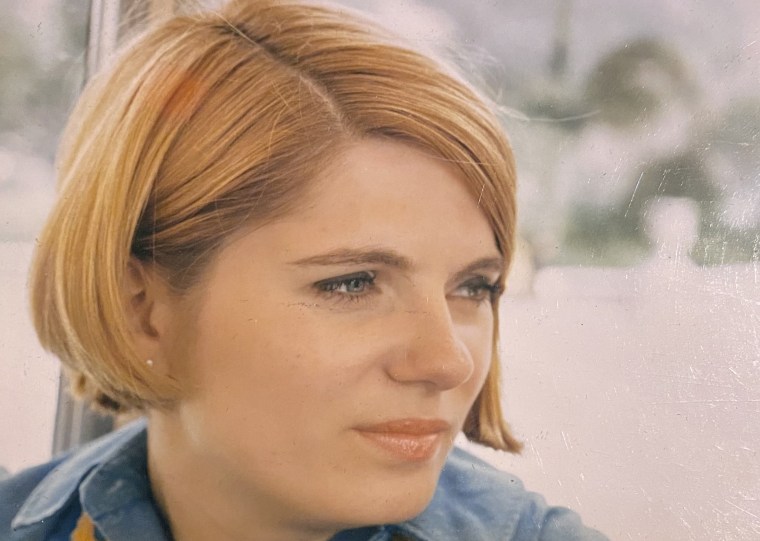
Here’s the thing: All my life my mother’s friends have told me I remind them of her. That I look just like her. That she and I had the same sense of humor. Maybe there was even more that we shared. I wish I knew. So, while my family didn’t need to remember, I did. I thought that if I was planning on becoming a good husband, and hopefully a father someday, I should also try to be a good son.
The woman at the cemetery sounded exhausted when I called, as if she spent her days being henpecked by all the widows of the late husbands in her care. Then I told her my story and the veneer cracked. She gave me the numbers of memorial companies that work on gravestones. The one I chose sent me an estimate along with some paperwork. Among the papers was an affidavit I needed to sign confirming that I was related to the owner of the plot — a long lost, long dead cousin.
The whole thing took me months to complete. I’m not sure why. Maybe I was waiting for someone to stand with me, to care as much as I did. But that didn’t happen. My brother did offer to pay half the cost because it was important to me. The gap in how we have dealt with the loss of our mother is wide and flows in opposite directions. Or maybe it was the finality of it all. Having something actually written in stone. If I let them take chisel to stone then I would finally have to let her go.
If I let them take chisel to stone then I would finally have to let her go.
In the end, I signed my name to those papers to give my mother back her name.
But it wasn’t so easy.
A few weeks later I got a voicemail from the company that does the memorials saying my request had been rejected by the cemetery. Despite the affidavit I had signed, they didn’t believe I was related to this long lost, long dead cousin. That meant that they didn’t believe I was related to my mother. I called them back and explained that my mother was an only child and that her parents were dead. No one currently living could possibly have rights to that grave but me and my brother.
The solution, I was told, was to provide my birth certificate proving I was my mother’s son. In a sense, I had to show that I belonged to my mother to verify that she belonged to me.
I didn’t have a copy of my birth certificate. But I knew who did.
My father and I waltzed through the usual small talk before I led us to the reason I had called.
“Hey dad, do you have a copy of my birth certificate?”
There was a pause. He was thinking.
“Let me look around,” he said. “What do you need it for?”
Here’s the moment where I should have told him the truth. But I didn’t.
“They need it for work,” I said.
I work as a producer at TODAY and, at the time, there was a chance I was going to be sent overseas. It was an easy cover I knew my dad wouldn’t question. He worked in television news for decades and respected the demands of the job.
Eventually, he sent me a copy of the birth certificate.
2014 in New York City was ushered in with the ball drop in Times Square, followed by a snowstorm across the five boroughs. The morning of Saturday, Jan. 4, I used a cardboard FedEx envelope to shovel the snow off our Zipcar. The memorial company had called to tell me that my request had been accepted and that the job was done. We were headed back to my mother’s grave site that day, the 30th anniversary of her funeral. This time we got a lovely bouquet of flowers and a holiday wreath. Then we drove to the cemetery.
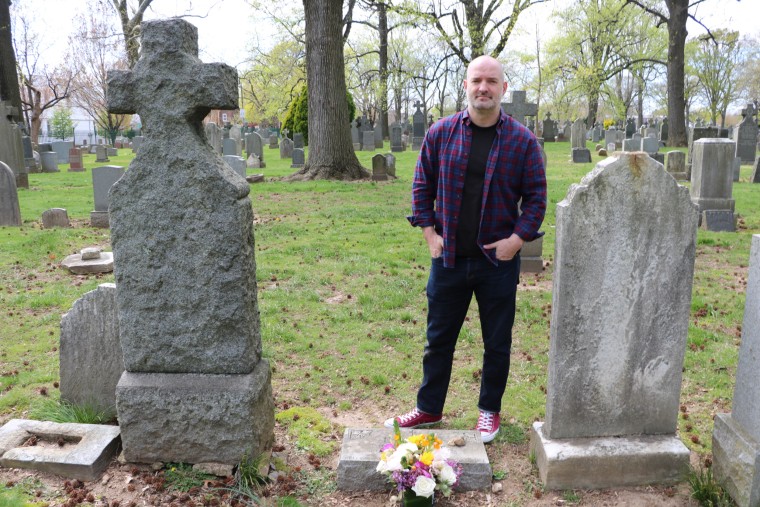
The grounds were a wintry landscape of snow and ornate stone. As we parked and left the car our breath was stolen by the frigid air. My wife carried the wreath, and I carried the flowers. I unfolded the yellow map.
As we tramped through the snow, I could feel my wife stealing glances at me to try to gauge what I was feeling. I’m not sure I knew.
Our path was intersected by the tracks of squirrels that spent their days scampering among the tombstones. Finally we got to the right section and started to look around. Without a word we split up and studied the stones. Selfishly, I wanted to be the one to find it first though I didn’t have the heart to tell my wife to stop looking, to stop helping. We looked and looked and once again I began feeling lost. Then I remembered that the headstone was low to the ground. I began kicking away the snow in between the taller markers. She must be there, I thought, in one of the empty spaces. And she was. Finally, my boots scraped away the snow covering my mother’s gravestone. This time it had her name, Mary Ann, flanked by her dates, 1947 and 1983.
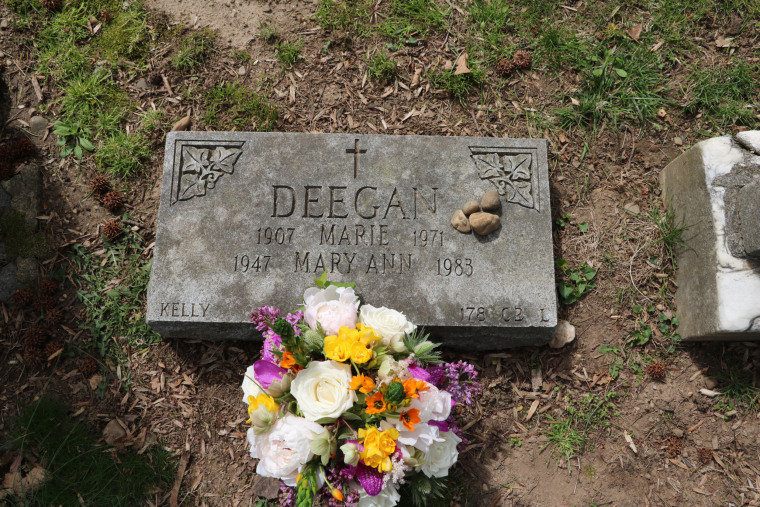
The tears came suddenly and with no surprise. My wife hugged me and then walked away to give me a moment alone. I stood there and told my mother that I loved her and missed her. The only reply was the bitter cold wind and the sound of my wife’s footsteps in the snow. At that moment I didn’t feel sadness or grief, but pride and peace. Pride in accomplishing this small tribute to a woman who had been so loved and so forgotten. The peace came from realizing that the pain I had carried for so long could never be jettisoned. It is a part of me, etched on my heart by some other stonemason. That defining period in my life three decades ago is mine alone to experience as I wish. And my wish is to never forget. Rather, I would take that long ago painful memory and this new hopeful one and stack them carefully with all the other important moments of my life and move forward. Bundled together, the load is easier to carry.
I said goodbye to the stone and promised to come back. With the flowers and wreath in place, I turned and followed my wife’s tracks through the snow, ready to be someplace warm.
